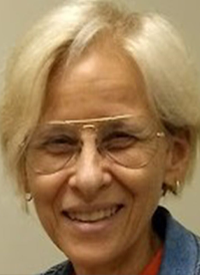Opinion: New Cancer Treatment Options in Florida Represent Larger Shift Toward Centralized Care
Debi Fischer, MSW, BSN, BA, LCSW, RN, discusses the launch of the Florida Cancer Connect program and what this initiative represents for patients across the United States.
Debi Fischer, MSW, BSN, BA, LCSW, RN

Florida’s First Lady, Casey DeSantis has used her role as a breast cancer survivor to advocate for new funding for the state. This started in December 2021, when the First Lady spearheaded a $100 million proposal for cancer treatment as well as research.1 DeSantis is now cancer free since March 2022 after undergoing lifesaving surgery and radiation therapy.
I find that I am interested in Florida’s new program, called Florida Cancer Connect.2 It has been described as a “one stop shop”2 for patients, and DeSantis refers to it as a “centralized website.”3 The goal is to streamline all the resources available to cancer patients in Florida under 1 umbrella. The website will also work as a bridge to connect patients to other patients, families, and caregivers. Florida Cancer Connect’s website is a joint effort between the Florida Department of Health and the Florida Agency for Health Care Administration. Of note, there was no new financial arrangements between the 2 entities. Instead, both departments used money already in their reserves to participate in this project.
This singular approach gives the patient and family new strategies to prevent cancer.Importantly, it will help individuals trying to work through their health insurance maze. I particularly appreciate that FLCancerConnect will have information geared towards the patients’ families, as they can often be forgotten. The site will also have insight from those who have survived cancer, granting patients links to valuable support systems online.DeSantis will also draw on her own experience with cancer to add small touches that will help support patients. She will include information that, in her experience, is often hard to find. She said in an interview“If you have to buy a wig, or if you’re looking for other things that might help with a surgery, where do I go? Where do I turn?”2 All of these resources will be available via this website.
A look at the website reveals a mechanism for locating cancer resources in the state. It also has a section regarding insurance company bills. The Florida Department of Financial Services Insurance Consumer Helpline can be accessed toll free at 1-877-MY-FL-CF (1-877-693-5236) or 1-850-413-3089 if calling from another state. The website also features a health insurance consumer guide. An innovative section, called the Letters of Strength page, has specific tools for cancer survivors and their Stories of Strength that can be read and used to inspire patients and their families.
Florida is not the only state with cancer screening programs. New York State has a Cancer Services Program which at no cost offers cancer screening and diagnostic services to its’ residents. Meeting certain age, and income criteria are also mandatory. These programs offer services for breast, cervical and colorectal screening. 1-866-442-CANCER (2262) is the toll-free phone number that is available 24/7 to connect the resident to these services.3 If the screening reveals any findings that require further evaluation, there are also diagnostic services and a dedicated case manager to walk the patient through this process. Moreover, in California, the Department of Health Care Services has free breast and cervical cancer treatment for its’ residents. In addition, there are no cost breast exams, mammograms, and Pap tests as well as a prostate cancer treatment program called Impact.4
I am happy to see more states turning their attention to centralizing resources for patients with cancer. I am looking forward to seeing the impact that DeSantis’ project may have on patients living in her state. As an oncology nurse and social worker, I believe that these programs are of tremendous value and I hope to see the trend continuing.
References
- First lady Casey DeSantis announces $100 million proposal for cancer research and care in Florida. Florida Gov.com. December 8, 2021. Accessed August 22, 2022. https://bit.ly/3SF9XSr
- Troncoso, R.Casey DeSantis comes to Jacksonville to announce statewide cancer initiative. August 3, 2022. Accessed August 22, 2022. WJCT News. https://bit.ly/3SnYAxT
- Cancer Services Program. New York State Department of Health; New York State Cancer Services Program. Updated September 2022. Accessed September 13, 2022. https://on.ny.gov/3qVgpsi
- Cancer Programs. Department of Health Care Services. Updated September, 2022. Accessed September 13, 2022. https://bit.ly/3S3TM0Z


